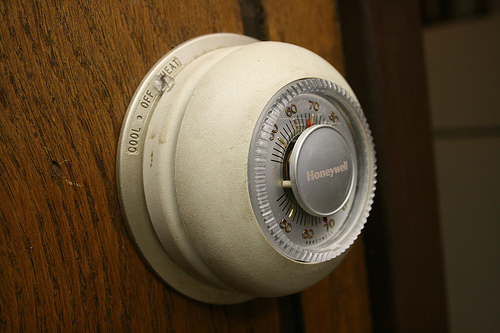NOTE: If your landlord lives in your building, see the “Exceptions” note on the right side of this page.
What is my landlord responsible for?
Your landlord has a duty to keep your apartment in good shape and make all necessary repairs. If she fails to do this, you may be able to:
- Make the repairs yourself and deduct their cost from your rent;
- Withhold a portion of your rent;
- Sue your landlord; or
- Terminate your lease agreement. This pamphlet explains when and how you can do these things.
What must my landlord do to maintain the condition of my apartment?
Keep your toilet, bathtub, shower, and bathroom sink in good working order;
- Keep your furnace and boiler in good working order;
- Keep your windows weatherproof;
- Keep your floors, walls and ceilings in good repair;
- Keep your plumbing fixtures in good repair;
- Keep your electrical outlets safe and operable;
- Prevent the accumulation of stagnant water;
- Keep all of the appliances he supplies in good working order;
- Maintain the building is foundation, exterior walls, and roof in good and watertight condition;
- Provide adequate hall and stairway lighting; Keep all stairways and porches in a safe and sound condition;
- Provide trash containers;
- Protect you against rodents and insects by exterminating; and
- Comply with all other requirements of Chicago’s Municipal Code.
If my landlord doesn’t make necessary repairs, can I use my rent to pay for these repairs?
Yes, but only if the repair will not cost more than $500 or one-half of your rent (which ever is greater). Using your rent money to make necessary repairs is called “repairing and deducting.”
How do I “repair and deduct?”
First you must give your landlord a written notice stating that, unless she makes the necessary repairs within 14 days, you will make them yourself and deduct their cost from your rent. Keep a copy of the notice. If your landlord doesn’t make the necessary repairs within 14 days of receiving the notice, you can make the repairs or pay someone else to do it. After giving your landlord paid receipts to confirm the cost of repair, you can deduct this cost from your rent. See sample letter here.
What if I want to repair a problem in a common area, such as a stairway or hallway?
You must first give all of the other tenants written notice of your plan to make the repair.
If my landlord doesn’t make necessary repairs, can I withhold a portion of my rent?
Yes, but first give your landlord a written notice stating that, unless she makes the necessary repairs within 14 days, you will withhold a certain portion of your monthly rent payments. NOTE: You cannot withhold a portion of your rent and “repair and deduct” in the same month.
If I decide to withhold a portion of my rent, exactly how much should I withhold?
The amount you withhold must reasonably reflect the reduced value of your apartment. Be conservative. You cannot withhold all your rent unless your apartment is in such bad shape that you must move, and you can rarely withhold as much as 50%. If you withhold too much, your landlord may be able to evict you for nonpayment of rent. To be safe, consult with an attorney. See “rent reduction” sample letter here.
Can I terminate my lease because my landlord has failed to make necessary repairs?
Yes, but only in very serious cases. Consult with an attorney first.
How can I terminate my lease?
First, you must provide your landlord with written notice that you will terminate your lease in no less than 14 days unless he makes whatever repairs are necessary. If she does not correct the problem within 14 days of receiving this notice, you may terminate your lease agreement. If you terminate the lease, you must move within the next 30 days otherwise your lease will remain in effect. See sample letter here.
If my landlord doesn’t make necessary repairs, can I sue him/her?
Yes, but consult with an attorney first.
Can I make my landlord pay for the cost of repairing a problem I caused?
No.
What if my landlord fails to provide me with an essential service (such as heat, electricity, or running water)?
See the page entitled Heat & Other Essential Services.
Does my landlord have to repaint my apartment?
Not unless the paint is cracking or peeling.
Can I sue my landlord if my property is damaged in her apartment?
Only if the property was damaged as a result of your landlord’s negligence.
Please Note: This information, published by the Legal Assistance Foundation of Chicago and the Metropolitan Tenants Organization as a public service, gives you only a general idea of your rights and responsibilities under the Residential Landlord and Tenant Ordinance and other relevant chapters of Chicago’s Municipal Code. It is meant to inform, but not to advise. Before enforcing your rights, you may want to seek the advice of an attorney who can analyze the facts of your case and apply the law to these facts.
Still can’t find the answer? Send us your questions. Please allow several days for a response.
